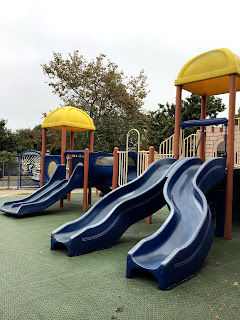Howdy, Campers, and Happy Poetry Friday!
In this round, we TeachingAuthors are tossing around the idea of PLAY. Carmela started us off Playing with Poetry Snowballs; Zeena took a look at Play Deprivation During the Pandemic; Bobbi introduced us to a fascinating book called Story Engineering in My Kind of Play; Mary Ann writes about what's been taken away during the pandemic in I Got Dem Ol' Kozmic (Creative) Blues Again; and now it's my turn.
We had house guests last week! It was SOOOO good to see my longtime friend, Bruce and his wife Alene who have been sailing around the world for over 15 years! It hasn't been 15 years since we've seen them...but it was the first time my husband and I have lived with other people for over two years...
At first it was weirdly scary. Gradually, very gradually, was fine. One night, we brought out the 1960's edition of GO TO THE HEAD OF THE CLASS (remember that game?)...
...and laughed our heads off at the antiquated questions.
What a relief play provides.
I build play into my 10 week beginning picture book class, especially the class on rewriting, because it's the session I dread teaching the most. Why? Because I lift the curtain to reveal the long, painful path some picture books trudge. Using my book NEW YEAR AT THE PIER as an example, I show them its depressing nine-year timeline.
Then, to dispel the nasty fog of despair in the room, my students play...with Play-Doh!
In an older post, I included a step-by-step description of the Play-Doh exercise. To my surprise, this exercise also works well on Zoom, so I also describe how to modify it for a virtual class.
But how do I personally play these days? Well, not so much with Play-Doh, and for the time being, not with my folk music friends and my fiddle in our cozy livingroom. :-(
Most days I'll either exercise, hike with friends and dogs, or walk by the beach. But every day I take my vitamins and every day I dive into Poem-Making (I borrowed this word from my mentor Myra Cohn Livingston's book of the same name.)
Some days I try different poetry forms, some days I write adult poems or poetry on a particular topic. Other days I'll goof around with In One Word poems...or simply play. Here's an example of playing with a poem I sent to Bruce in 2011. He sends me a poem every day, too.. Below the poem is the backstory I included when I sent it...and his comment.
CAMERON SCAMPER
Cameron Scamper
baked glue-crayon cake.
“Yum,” said his brother.
“Yawn,” said the snake.
Cameron Scamper
taught their dog how to fly
“Wow,” said his brother.
The snake closed its eyes.
Cameron Scamper
stopped talking for weeks.
“Gosh,” said his brother.
The snake went to sleep.
Cameron Scamper
hid the dog in a drum.
“Oooh!” said his brother
The snake said, “Ho-hum.”
Cameron Scamper
made soup out of dirt.
“Yum,” said his brother.
Snake said he much prefered chocolate yogurt.
===================================
I sent this backstory to Bruce:
Always listening for odd
names, I thought I heard "Cameron Scamper please report to Gate 14"
at the Los Angeles International Airport...but later I heard it as a slightly
tamer name.
I played with it below...and played and played and ran out
of steam!
Bruce replied: We liked this poem a lot… except for the
last line (which, as you said, did run out of steam). Fix it and keep it.
====================================
Writing and sending a poem a day for the last 11 years has made us even closer friends than we were before. Try it and see: gGrab someone you love who loves to write and dive in!
Thank you, Linda at TeacherDance, for hosting Poetry Friday this week!
posted by April Halprin Wayland (before I've written today's poem) with the help of Meredith and Derek our 10-month-old tortoises, Sheldon, our hibernating 28-year-old tortoise, Kitty, our most excellent pandemic adoptee, and Eli our elder statesman dog. (for pix of them scattered among other posts, see FB or Instagram)





























